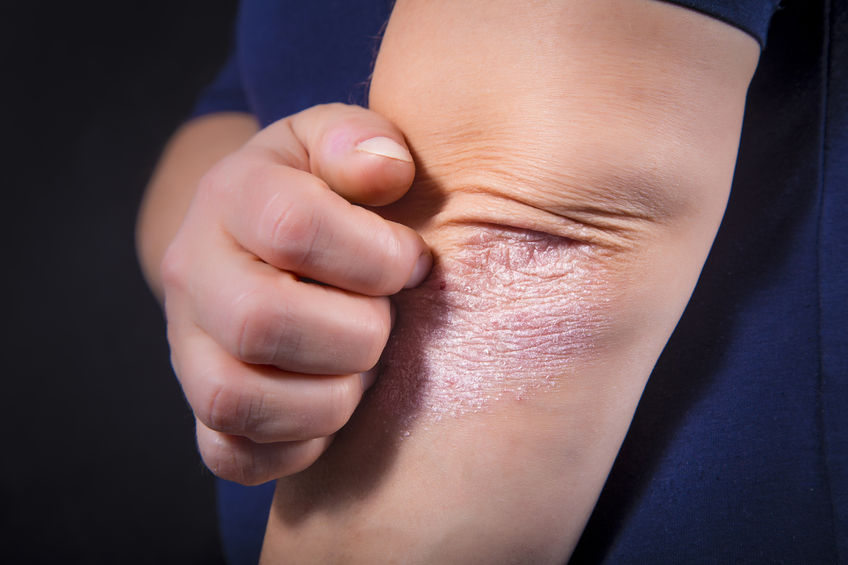Did you know August is Psoriasis Awareness Month? It’s the perfect time to help raise awareness of this autoimmune disease that affects 7.5 million Americans. [1]
What exactly is psoriasis?
Psoriasis can cause your skin to appear thick, red, and scaly. These patches often occur on elbows, knees, and scalp, among other places on the body. Psoriasis occurs when your skin “speeds up the life cycle of skin cells. It causes cells to build up rapidly on the surface of skin.” [2]
Can I “catch” psoriasis?
Nope. Psoriasis is not contagious. You can’t get it from someone who has it. It’s an autoimmune disease. Family history may play a part in developing psoriasis. [2]
What triggers psoriasis to occur?
We’ve discovered that psoriasis can flare if certain triggers are introduced. The Mayo Clinic [3] has this list of possible psoriasis triggers you may want to watch for:
- Infections, such as strep throat or skin infections
- Injury to the skin, such as a cut or scrape, a bug bite, or a severe sunburn
- Stress
- Smoking
- Heavy alcohol consumption
- Vitamin D deficiency
- Certain medications — including lithium, which is prescribed for bipolar disorder, high blood pressure medications such as beta blockers, antimalarial drugs, and iodides
How do I treat psoriasis?
First, we at Horizon Family Medical Group want to ensure what you’re experiencing is, in fact, psoriasis and not eczema or some other dermatological issue. We can then talk about treatment options.
Treatment may include medication, creams, and ointments. Our goal is to diminish the symptoms and discomfort. [2]
If you experience psoriatic arthritis, we may want to discuss those medication options as well.
Resources
- https://www.psoriasis.org/content/statistics
- https://www.cdc.gov/psoriasis/index.htm
- https://www.mayoclinic.org/diseases-conditions/psoriasis/symptoms-causes/syc-20355840

